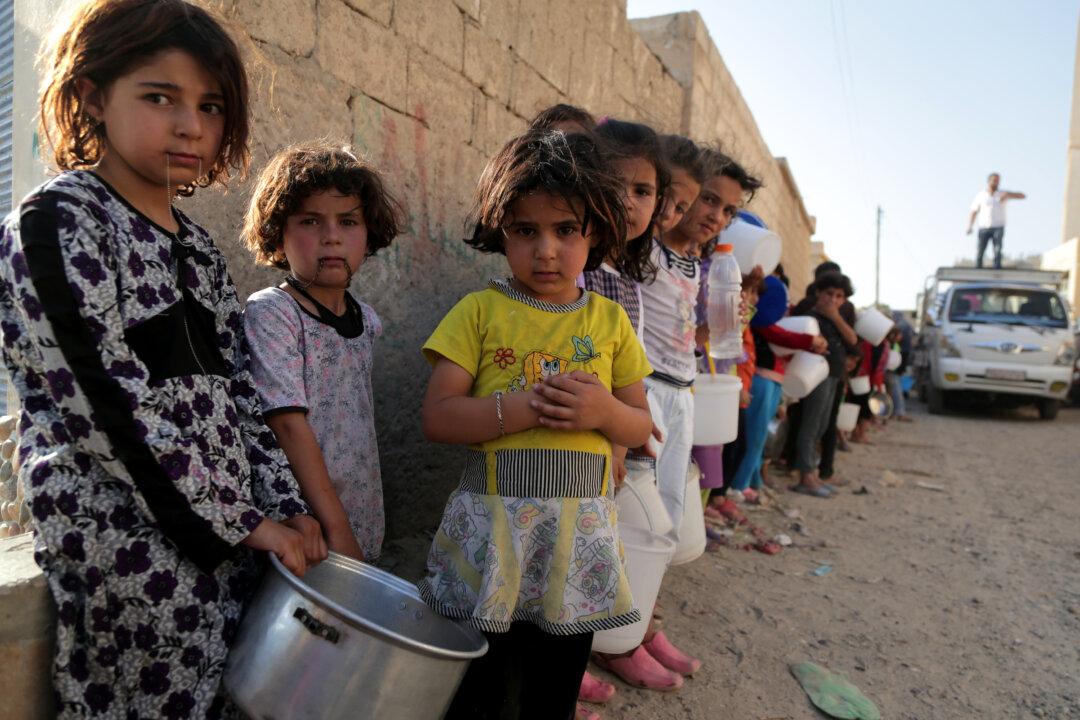The world has 50 million displaced people, and refugees have little choice but to depend on other countries and their citizens for generosity. Faith-based charities are often among the first to respond to humanitarian crises, notes the UN Refugee Agency, and Islamic faith-based charities are active in Pakistan, Iran, Lebanon, Jordan and Turkey – lead host nations for refugees. Fundraising by Muslim charities could be compromised as governments try to block financing mechanisms for extremist groups like the Islamic State, including jihadists posing as charitable groups. Governments, however, don’t agree on which groups should be banned. The UAE placed Britain’s largest Muslim charity, one that works closely with governments and the United Nations, on a list of banned groups. Aid groups engaging in discrimination, waste or criminal activity erode donor confidence. Unfounded accusations can ruin reputations and discourage generosity, too. – YaleGlobal
The murder and mayhem of Islamic State and other terrorists ruin the lives of those who must flee in more ways than one. The conflict poses danger and uncertainty for aid groups operating in the region, and fundraising is compromised as governments strive to put a stranglehold on resources diverted to extremists.
Amid a flurry of cross-border donations and grants to help the victims, governments want to prevent funding, particularly public monies or tax-exempt donations, landing into the hands of extremists. Attacks on Muslim charities as a whole are counterproductive and threaten fundraising capability among Muslims, identified as the most generous religious group in the United Kingdom, warned Stephen Bubb, executive director of ACEVO, a UK charity leaders network, in a letter to The Times and testimony to the Parliament’s Joint Committee on the Draft Protection of Charities Bill.
“Ironically, such groups are our best opportunity to create a common sense of belonging and purpose that prevents radicalisation and extremism,” Bubb wrote.
Governments are encouraging greater transparency on charitable missions and improved training for banks and transfer agents after more than 25 nations – including Saudi Arabia, the UAE, Kuwait, Oman, Qatar, Egypt, Iraq as well as the United States, China, India, the United Kingdom – met in Bahrain in early November for a Conference on Combating the Financing of Terrorism.
Suspicions have run high since the 9/11 attacks in 2001 about charities serving as fronts for collecting or laundering money for terrorist groups. A staff report for the US National Commission on Terrorist Attacks suggested that Al Qaeda funding, about $30 million per year, was largely diversions from Islamic charities and facilitators who collected money from “both witting and unwitting donors, primarily in the Gulf region.”
Yet faith-based charitable organizations are often among the first to respond to humanitarian crises, notes the UN Refugee Agency. At the start of 2014, the world had more than 50 million forcibly displaced people. Lead host nations for refugees are Pakistan, Iran, Lebanon, Jordan and Turkey where Islamic faith-based charities are on the frontlines. Faith-based groups have vast networks, notes the agency, and they “often remain long after international attention has faded, and funding has declined.” In October, the UN Relief and Works Agency – responsible for 5 million Palestinian refugees in Jordan, Lebanon and Syria, whose core activities largely rely on donations – praised a coalition of five international Muslim charities for relief efforts in Gaza and a $500,000 donation.
The string of military successes for Islamic State extremists, suspected of receiving external financial backing, has prompted renewed crackdown on financing mechanisms for extremist groups as countries tighten regulations, compile lists of banned groups and try to clear donor confusion. Charities banned in one nation still operate in others. New groups select names similar to those of established groups. Organizers can quickly re-register new names.



